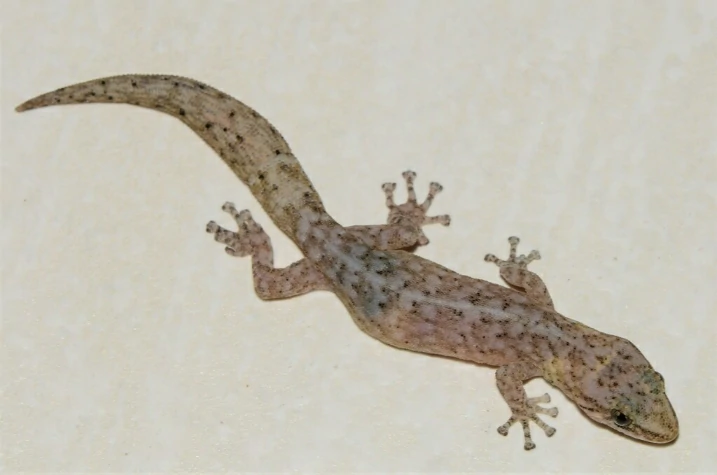If you’ve ever walked outside at night in a warm area, you’ve probably noticed them. Tiny geckos clinging to your porch light, hanging around a streetlamp, or sitting by a bright window.
At first, it might seem like these little lizards are drawn to the light itself. But the story is actually a lot more interesting. So why are geckos attracted to light?
Geckos aren’t actually attracted to the light itself, they’re attracted to the insects that gather around lights. Moths, mosquitoes, beetles, and other bugs fly toward bright lights at night, creating an easy feeding spot for hungry geckos.
Lights act like insect magnets, and geckos have learned that hanging around lights means easy meals. It’s smart hunting strategy, not an attraction to the light itself.
Why Geckos Prefer Hunting Near Lights at Night
Most geckos are nocturnal, which means they’re active at night. Their eyes are designed to see in low-light conditions, giving them an edge over many insects that aren’t as alert.
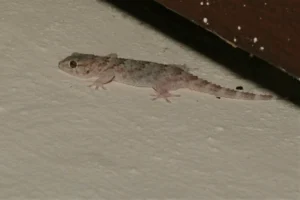
The light doesn’t just attract bugs, it helps geckos see their prey more clearly. During the day, geckos hide in cracks, under leaves, or in tree bark to stay safe from predators.
But at night, when insects start flying around lights, geckos can come out and use their sharp vision to hunt.
It’s like walking into a dimly lit room full of snacks; they don’t have to search far to find food.
Not all geckos are attracted to lights the same way. House geckos (Hemidactylus species) are almost always seen near human homes with lights.
Others prefer hunting on tree branches, rocks, or leaf litter. Even so, any gecko that eats flying insects will usually check out lights at night if bugs are around.
Are Geckos Chasing the Light or Just the Bugs?
The reason geckos hang out near lights is simple: insects love light. Moths, beetles, mosquitoes, and tiny flies are drawn to lights.
This is called positive phototaxis, which just means bugs move toward light.
Geckos take advantage without even thinking. They just sit and wait.
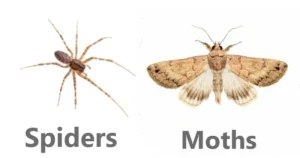
Some people notice geckos become “regulars” near porch lights, sitting on the wall for hours, snapping up insects one by one. It’s instinct.
Geckos have evolved to hunt efficiently at night, and a light attracting bugs is basically a jackpot for them.
How Geckos Use Their Eyes to Hunt in the Dark
Geckos’ eyes are built for low-light vision. Unlike many predators that rely on movement, geckos can detect tiny changes around them, like a fly hovering near a lamp.
Their night vision lets them ambush prey with precision.
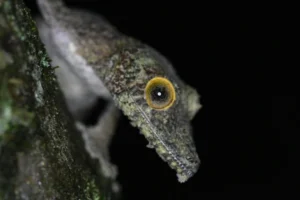
Picture a gecko clinging to the side of your porch light, head tilted, eyes locked on a fluttering moth. The insect doesn’t stand a chance.
Geckos can even hunt on ceilings or upside down thanks to their sticky toe pads, making lights an ideal hunting zone.
Which Lights Attract the Most Bugs (and Geckos)?
Not all lights attract the same number of insects, and geckos know this indirectly. Warm-colored lights, like yellow or amber bulbs, attract fewer bugs, while white or bluish lights bring swarms.
A gecko near a bright, cool-toned light probably has a lot more bugs to choose from than one near a soft, yellow light.
It’s not that geckos care about the color, it’s all about the insects. The brighter and bug-richer the light, the better the hunting spot.
Why House Geckos Love Hanging Around Human Homes
Geckos living near humans have figured this out well. House geckos are commonly seen on walls, ceilings, and windows at night. Inside or outside, wherever insects gather, geckos follow.
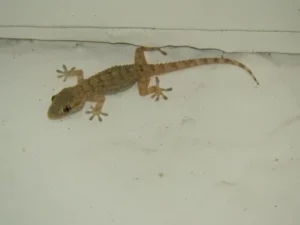
Some people think geckos are attracted to light because it’s warm, but warmth isn’t the main factor.
Geckos do like warm surfaces to sit on, but the real pull is the insects. Light just makes hunting easier and more predictable.
This has made geckos almost “accustomed” to human habitats. In tropical and subtropical regions, you might see them perched above a doorway or on a lamp post every evening, quietly catching bugs.
They’re harmless and even help keep mosquito numbers down.
How Geckos Hunt With Their Special Skills
Geckos hunt in a way that works perfectly with lights. They’re ambush predators, meaning they wait for prey to come close instead of chasing it. A light full of flying insects is the perfect setup.
Imagine a gecko clinging to a wall near your lamp. Its eyes are adjusted to the dim light, body still but ready.
Every tiny movement (a mosquito buzzing, a moth flitting by) is detected instantly.
When the right moment comes, the gecko strikes in a fraction of a second.
It’s not luck. Geckos are highly efficient hunters. Their sticky toe pads let them cling to vertical surfaces.
They can hang upside down, sideways, or on ceilings and still catch insects with amazing speed. Lights just make hunting easier.
Does the Season Affect How Geckos Hang Around Lights?
Geckos’ attraction to light changes with the seasons. In warmer months, when insects are everywhere, geckos are more likely to hang around lights.
In cooler months, when bugs are fewer, geckos may retreat to quieter areas to save energy.
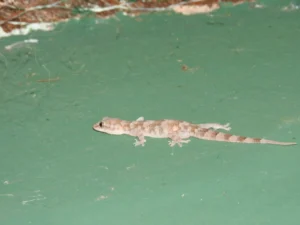
For example, in summer you might see a gecko near your bright outdoor light for hours, feasting on the swarming bugs. In winter, the same spot may be empty because insects are scarce.
Some species also adjust hunting locations during breeding season. Males may focus on defending territories or calling to attract females while still grabbing a few insects along the way.
Are Geckos Really Fascinated by Light?
It’s important to remember that geckos aren’t fascinated by light like a moth. The light isn’t entertainment, it’s opportunity. Without insects, most geckos wouldn’t care about a bright lamp.
If you turn on a light in a room with no bugs, you probably won’t see geckos appear. They’re practical hunters, not thrill-seekers.
Their attraction to light is about feeding efficiency and easy access to food.
How to Enjoy Watching Geckos Without Disturbing Them
Geckos around your lights are harmless and helpful, but keep a few things in mind:
-
Don’t try to touch or pick them up while they’re hunting. Most geckos are shy, and disturbing them can stress them out.
-
Keep lights bug-friendly, but know bright lights may attract more insects than you want near doors or windows.
-
If you have cats or dogs, know that geckos are usually safe, though small geckos can become prey for curious pets.
Overall, geckos around your lights help control bugs, are fun to watch, and pose no danger if left alone.
Conclusion
So why are geckos attracted to light? The answer is simple: they’re not chasing light, they’re chasing the bugs. Lights act as insect magnets, giving geckos a reliable, easy place to hunt.
Their night vision, ambush hunting style, and sticky toe pads make them perfect for this kind of feeding.
Seasonal changes, the type of light, and the local bug population all influence how many geckos you’ll see at your porch light or streetlamp.
Hi, my name is Ezra Mushala, i have been interested animals all my life. I am the main author and editor here at snakeinformer.com.

